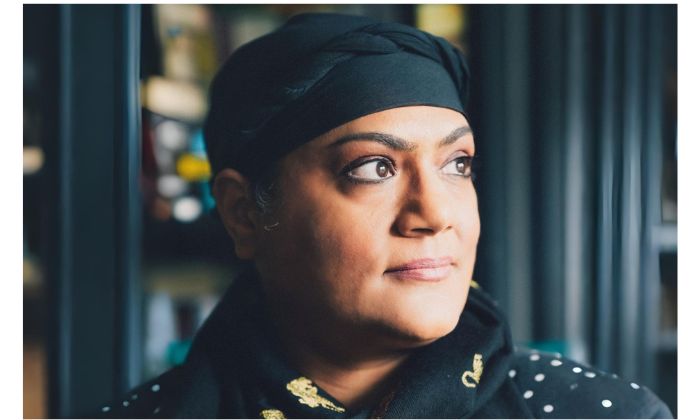Manchester expert wins Royal Society’s highest honour for a historian of science
03 Sep 2025
Professor Sadiah Qureshi awarded the prestigious Wilkins-Bernal-Medawar Medal and Lecture.

Professor Sadiah Qureshi, a leading historian at The University of Manchester, has been awarded the prestigious Wilkins-Bernal-Medawar Medal and Lecture by the Royal Society in recognition of her internationally acclaimed research on science, race, empire and the history of extinction.
The medal is the Society’s highest honour for a historian of science, which is awarded annually for outstanding interdisciplinary contributions that illuminate the relationship between science and the wider human experience. It is named in honour of John Wilkins, John Desmond Bernal and Sir Peter Medawar, whose pioneering work explored the intersections of science, philosophy and society. Previous recipients include some of the UK’s most prominent historians and philosophers of science.
Professor Qureshi’s award acknowledges both her distinguished scholarship in the history of science and her ability to engage wider audiences in urgent debates that shape our present and future. Her work has transformed understandings of how ideas about race and empire have influenced scientific thought from the eighteenth century onwards.
Her research highlights the ways in which science and empire were deeply entangled, showing how racialised worldviews were both informed by and reinforced through scientific practices. She has also made major contributions to the history of natural history, particularly through her recent book on the emergence of extinction as a modern concept.
Published this year to widespread acclaim, Vanished: An Unnatural History of Extinction explores how the idea of extinction - which is now fundamental to modern science and environmentalism - was only recognised in the late eighteenth and early nineteenth centuries. By uncovering the cultural, political and imperial contexts in which extinction was first understood, Professor Qureshi demonstrates that what we often take as timeless scientific knowledge is in fact historically contingent, with deep consequences for how societies today approach the climate and biodiversity crises.
Professor Qureshi joined The University of Manchester in 2023 as Professor of Modern History, having previously studied natural sciences and the history of science at the University of Cambridge. She has established herself as a leading public intellectual, contributing to major exhibitions, media debates and policy discussions that seek to make historical perspectives on science accessible beyond academia.
“It is a tremendous honour to receive this medal,” said Professor Qureshi. “The Royal Society’s recognition highlights the importance of placing science within its broader social and historical contexts, especially at a moment when global challenges demand we think critically about our past to imagine better futures.”
“The recipients of this year’s medals and awards have all made outstanding contributions to science and its applications for the benefit of humanity,” said Sir Adrian Smith, President of the Royal Society. “They have done so through by furthering our understanding of the processes that govern the world around us, changing the practices of academia to build a more robust and inclusive research environment, and engaging new audiences. I offer my congratulations to all the 2025 recipients.”
